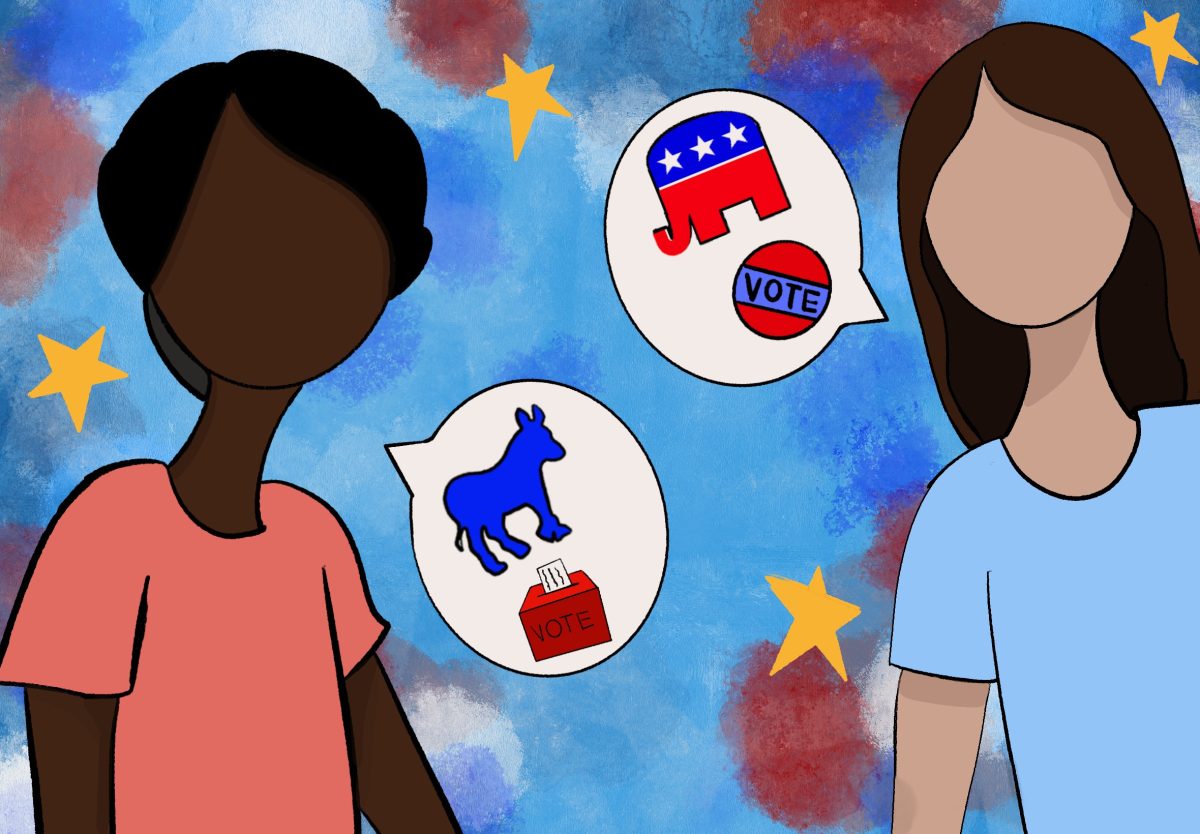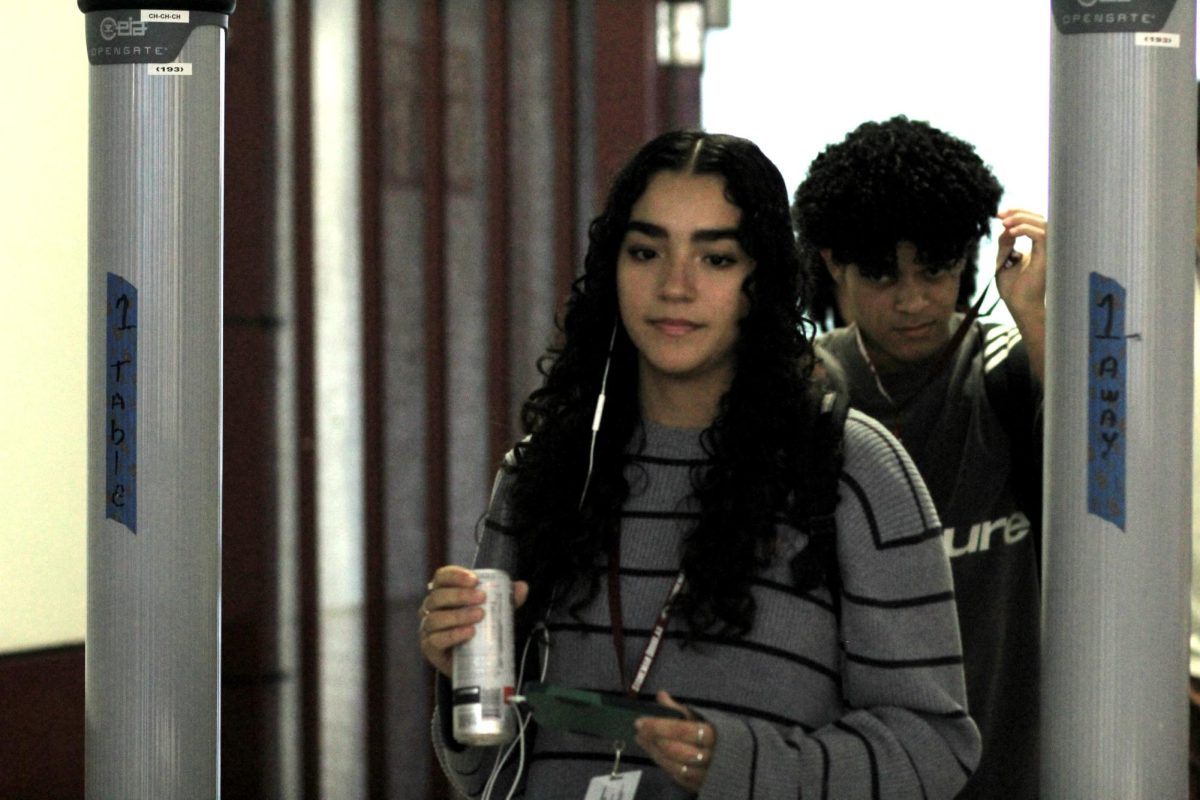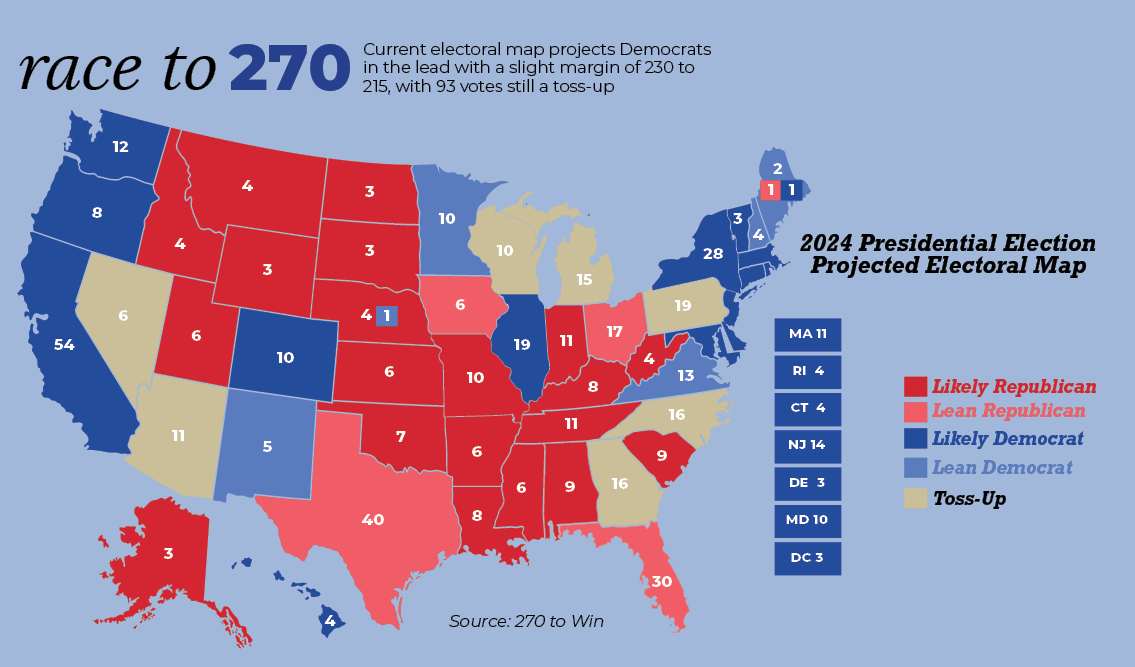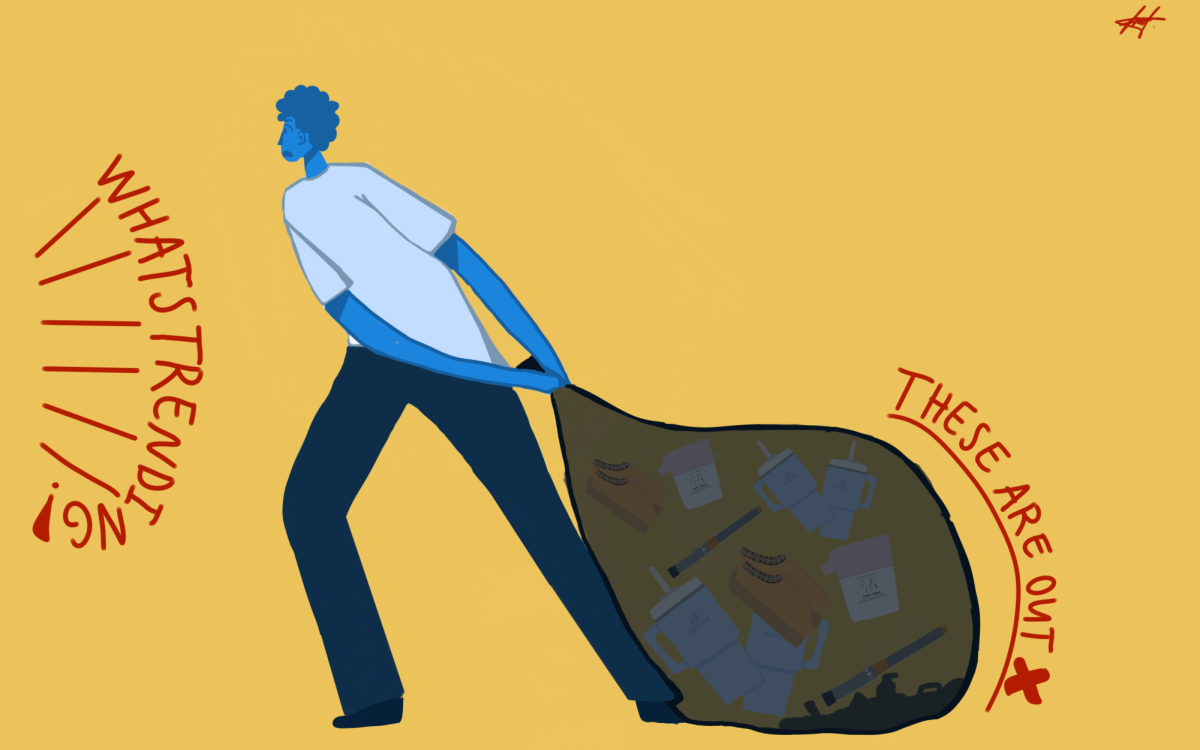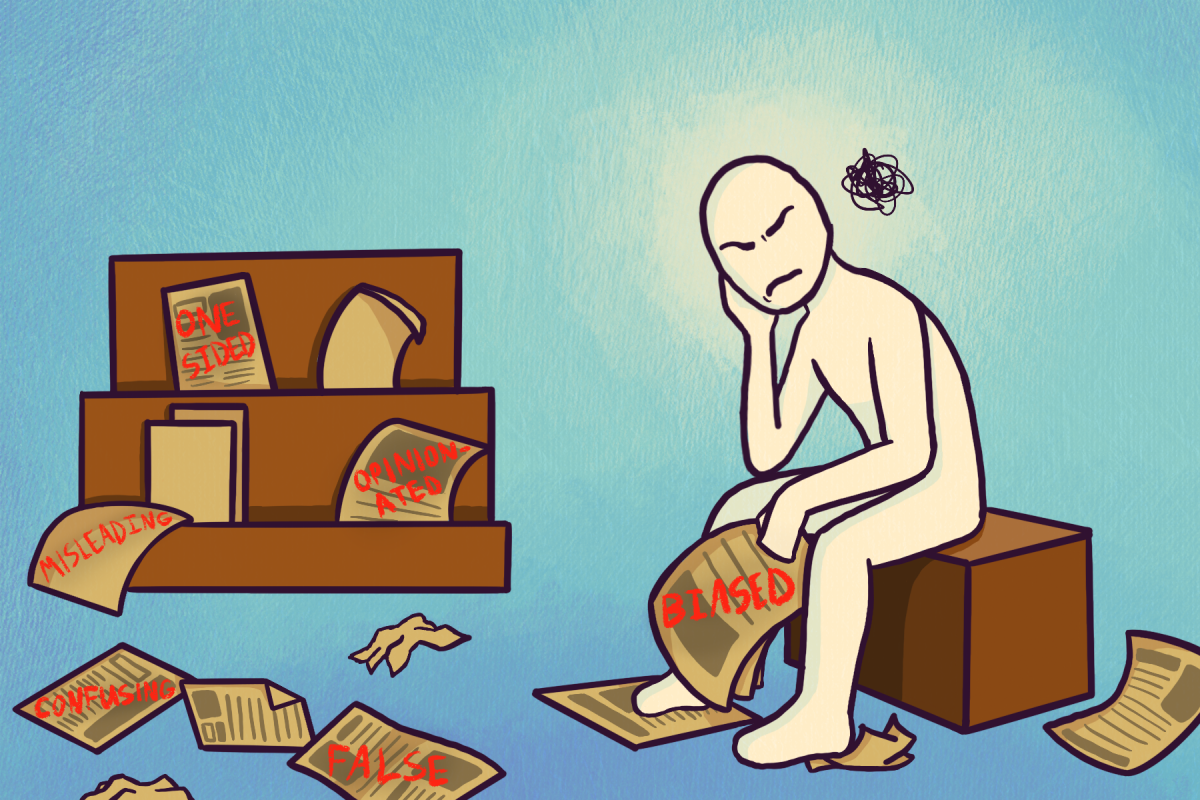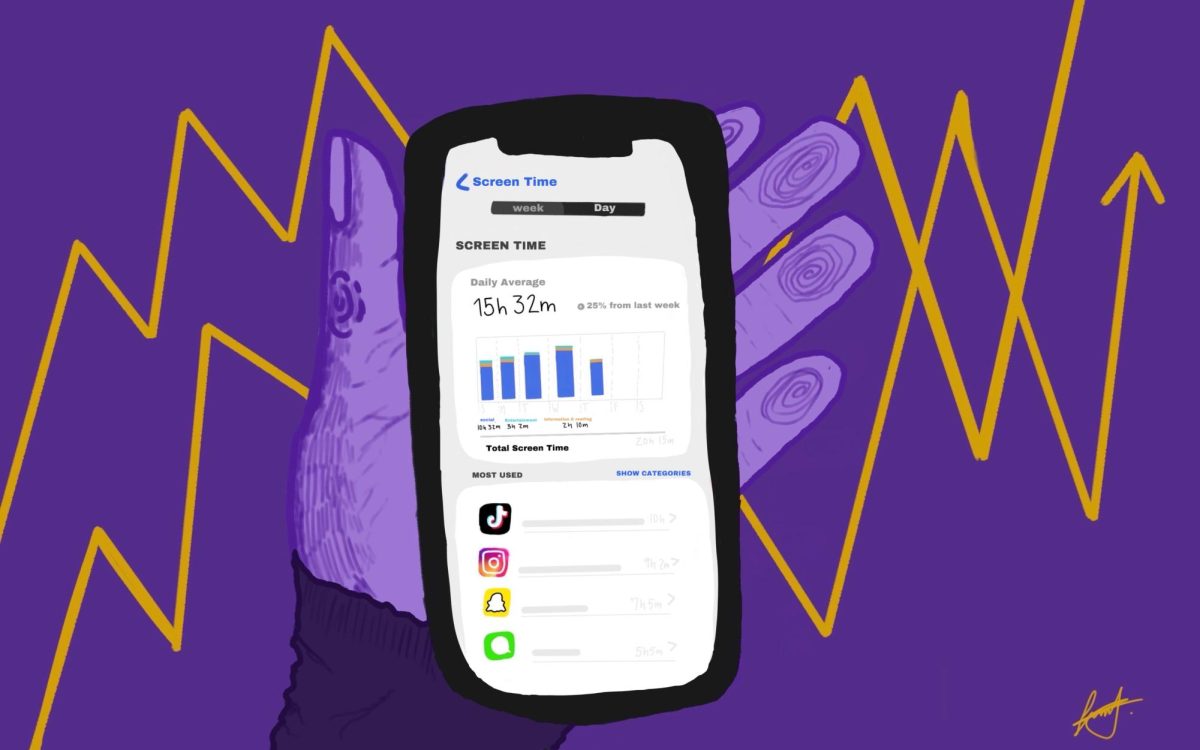Exhausted after a long day of school, a teenage boy scrolls through his Instagram feed, staring at the never-ending content on his screen. Countless pictures of men with unattainable muscles, videos of men explaining why therapy is overrated and posts of men ranting about the lack of support they have at home appear one after another. He feels overwhelmed by this content, wondering if his own behaviors are socially acceptable, and begins to believe the content he is seeing.
As social awareness increases, discussions about what defines gender and gender roles continue to change. The definition of masculinity is evolving, as men around the world rethink the ideals instilled in them from an early age and begin movements that they believe better express manhood.
According to a 2017 study conducted by the Pew Research Center, “While majorities of men and women see gender differences when it comes to the way men and women approach parenting and how they express their feelings, there is a wide gap between the two groups in views of whether these differences are mostly based on biology or on different expectations society has for men and women.”
According to an October 2023 Salon article written by sociology professor Micahel Flood, the term “toxic masculinity” first emerged in the 1980’s, but did not become part of mainstream social vocabulary until 2015. The term refers to a particular version of masculinity that emphasizes the worst parts of stereotypical masculine attributes, like violence, dominance, emotional illiteracy, sexual entitlement and hostility to femininity.
This version of masculinity stems from an expectation that boys and men should be strong, active, aggressive, tough, daring, heterosexual, emotionally inexpressive and dominant. According to Flood, not only is toxic masculinity bad for women because it “shapes sexist and patriarchal behaviors, including abusive or violent treatment of women,” it is also bad for men and boys because the “narrow stereotypical norms constrain men’s physical and emotional health and their relations with women, other men and children.”
The proliferation of these stereotypes often takes place within homes through the teaching of harmful stereotypes and, more recently, through the internet via an increase of online influencers who are spreading their ideas and opinions. This trend has led to a rise in toxic ideologies and misogynistic views, especially among impressionable young boys. Misogyny is defined as the dislike of, contempt for, or ingrained prejudice against women.
It Starts at Home
The presence of these hyper-masculine personality traits among young men often stems from the actions and words they hear at home. According to Jabeen Begum from WebMD, risk factors that contribute to toxic masculinity include dysfunctional family environments and exposure to social norms that encourage male violence and dominance, including within the home. This is especially true when the figures young men have within their household, such as their fathers or older siblings, project these traits. These role models tend to reinforce practices that can have a negative impact on the way young men think.
When phrases that express overly masculine ideals and beliefs are used regularly, young boys are left susceptible to the negative effects of expectations. A common ideal for young men is that they should hide their feelings and emotions, portraying a false narrative that men should always maintain a strong face, according to a BetterHelp article from December 2023. This may lead to mental health issues later in life as a result of prolonged repression of one’s thoughts and feelings.
According to a November 2023 article from family therapist Kevin Foss, physical and mental health treatments are strongly opposed by toxic masculinity. By suppressing mental health issues, their symptoms can worsen, leading to isolation, loss of jobs and friends and in extreme cases, suicide.
Sayings such as “man up,” “boys don’t cry ‘’ and “stop crying like a girl” pressure men to suppress their feelings or even feel that their emotions are not appropriate. A 2017 Pew Research Center survey revealed that 86% of men feel pressure to be emotionally strong and 53% believe that today’s society looks up to men who are manly or masculine.
Role models can create or increase the pressure to demonstrate these traits. Some students at Marjory Stoneman Douglas High School feel this pressure from males in their own life.
“I think toxic masculinity is pretty detrimental to men’s mental health,” sophomore Joshua Brown said. “It’s one of the reasons why the mental health of boys is so low and creates a cycle of boys bottling up their emotions. Personally, it felt like there was a rule that we had in my house, and I grew up knowing not to cry in front of others.”
In addition to toxic masculinity’s psychological effects, encouraging it at home may create behavioral issues like physical aggression. Another 2017 Pew Research Center survey revealed that 69% of Millennial men face at least some pressure to throw a punch if provoked, a significant increase in comparison to 55% of Generation X, 53% of Boomers and 34% of men from the Silent Generation. Phrases such as “boys will be boys’’ justify men’s violent behavior.
“Honestly, I think it’s stupid because it excuses their behavior under the premise that they’re just being boys,” freshman Lucy Woo said. “I feel like girls are sometimes held to a higher standard when it comes to how they act, and phrases like that let guys get away with things that wouldn’t be considered acceptable from a girl.”
This is a double standard, or principle that applies to men and women differently. For example, it is widely accepted and expected that a woman will cry, but if a man were to cry, it is frowned upon. This double standard extends to material items, such as toys and hygiene products. They are often gendered and can contribute to feelings of exclusion among young men.
Though there is often an influence of toxic masculinity at home, the internet has amplified the issue. Without any encouragement to express themselves at home, young men turn to the internet for influence. Podcasts, social media platforms and chat forums all are ways that boys learn and spread toxic masculinity.
“On the internet, so many people judge boys and males in general thinking that they can’t cry,” freshman Jayden Castro said. “I think that’s just wrong for them to say as we have feelings as well.”
Known as the “manosphere,” this online community can range from sharing health and fitness advice to bashing others because of their looks or beliefs. This gives many opportunities for people to be sexist and misogynistic, which are the ideas that women, transgender and nonbinary people are inferior to cisgender men.
“I think toxic masculinity is a weak philosophy that desperately allows men to assign a pseudo, mental and physical dominance over men and women who don’t share their traditional values,” junior Tahji Garcia said. “Men use this online space to spread those beliefs and assign it to other men who don’t particularly have a direction.”
A topic commonly discussed within the manosphere is the role women have in marriage. According to 2017 Pew Research Center study results, men who are influenced by the ideals of toxic masculinity typically agree that women should have the caretaker role in their family and they must prepare food for their husbands and children. They talk about how a woman’s purpose in a marriage is to provide for children, while a man’s purpose is to get a job and make the money necessary to support a family.
“Men, for centuries, have always had the upper hand in everything, which makes women sometimes afraid of men,” freshman Aurora Davis said. “Men and their violence have been putting women under a chokehold, which is wrong.”
As a result of engagement with online content perpetuating toxic masculinity, the algorithms on social media platforms will recommend more videos with similar content, which further fuels beliefs in such ideas.
Impact of Influencers
The beliefs instilled in young men create a breeding ground for ideologies of toxic masculinity online. Some popular idols and influencers of the manosphere have caused the spread and introduction of toxic masculinity to young men. One of these influencers is Andrew Tate, who has a large teenage following with which he shares his misogynistic ideals.
While most people know Andrew Tate from his arrest which made national headlines last year, many know him online for his ideas on masculinity and misogynistic views. His growing list of followers has led to young men idolizing him as the definition of what a man should be. After his Twitter account was reinstated in November of 2022, following his arrest, Tate’s following rose from 40,000 to 8.8 million today. His influence is especially prevalent among a younger demographic of boys.
According to a 2023 survey conducted by YouGov Children, 54% of children between 6 and 15-years-old , 60% of which were boys, know of Andrew Tate. 17% of those children have a positive opinion of him.
“I agree with some of the stuff that Andrew Tate says, especially his takes on discipline,” sophomore Matthew George said. “I think that he is a good example of a man’s mindset for success to be, but I totally disagree on the misogyny aspect of it all.”
On the other hand, some students feel influencers like Andrew Tate do more harm than good when influencing the mindset of impressionable teenagers.
“Whenever I saw Andrew Tate on my screen it felt like I was watching a circus, and he was the clown,” senior Oliver Grushka said. “The way he phrases things is so absurd that it genuinely feels like satire.”
Misrepresentation in Media
The reinforcement of traditional male gender roles remains a common theme in television, movies, books and music, according to Newport Institute, a national organization that works to improve the mental health of young people. Male characters are often depicted as dominant and assertive, being described as having exaggerated muscles and features. Such representation often leads to men, especially teens, having unattainable body standards.
According to the Newport Institute’s website, “The muscular superheroes in action movies and the highly documented body transformations and workout regimens of celebrities contribute to feelings of inferiority among young men with ‘average bodies.’ This mistakenly convinces young men that they too, can attain the ‘ideal’ body if they try hard enough.”
This is largely achieved through inaccurate casting in the media. Actors playing high school students are typically much older than their portrayed characters. This gives a dramatized illusion of what young, teenage boys should look or behave like.
An example of this is the character Nate Jacobs, played by Jacob Elordi, from the HBO Max series “Euphoria.” Jacobs, an 18-year-old high school student, sports a heavily exaggerated body type, with large, brooding muscles and sharp facial features. His actor counterpart was 24-years-old at the start of filming, therefore creating an inaccurate portrayal of what a teenage body is supposed to look like.
“I feel like most shows don’t actually show what real men are like,” George said. “Having actors that are so much older than their characters not only makes the show feel off but makes it hard to relate to the characters. I think there’s this need for teens to replicate what they see in the media, I just wish it were realistic.”
Men are more likely to have substance abuse problems from this, according to Medical News; and, their mental health is affected by their efforts to fit into the mold. They may experience symptoms of eating disorders, anxiety and depression and will most likely avoid seeking professional help due to their ideals and the embarrassment they feel they will face.
Solutions
The issue of toxic masculinity will continue to persist so long as pressure from outside sources continues to influence the next generation of young men. This cycle will continue to be perpetrated so long as these ideas continue to be ignored instead of talking about them in discussions.
According to a 2022 article by Newport Institute, “for many men, asking for assistance, whether from loved ones or a mental health professional, is the hardest thing of all. Understanding that men have been conditioned in this way can help reduce the stigma.”
Therefore, to help combat the issue of toxic masculinity, researchers encourage more men to seek help and talk about their problems through therapy, breaking the stigma of therapy. By finding healthy ways to cope and move forward, men can learn how to better themselves without jeopardizing themselves and those around them. This could also help men overcome any trauma they have experienced in their childhood, which would have led to toxic masculinity in the future. There is a positive trend of more men seeking professional help through therapy in recent years, as the percentage of American men going to therapy has risen by 30%, according to a 2023 article by the Guardian.
By raising awareness of toxic masculinity and encouraging men to value their mental health, the harmful ideals of the movement can be transformed into healthy attitudes for every man.
This story was originally published in the March 2023 Eagle Eye print edition.










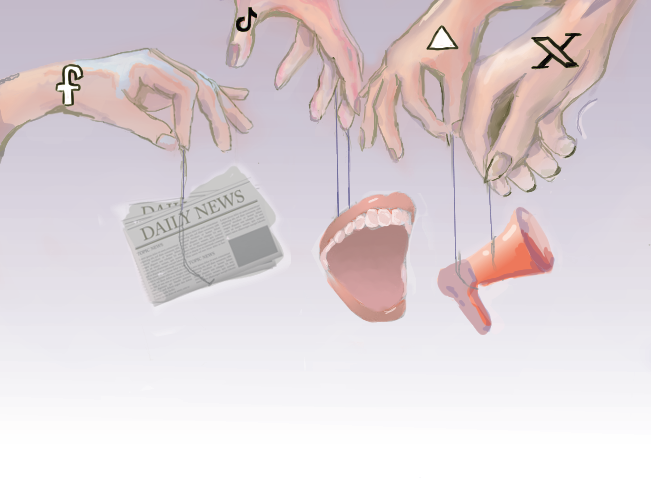




![National Honor Society Sponsor Lauren Saccomanno watches guest speaker Albert Price speak to NHS members. National Honor Society held their monthly meeting with Price on Monday, Nov. 4. "[Volunteering] varies on the years and the month, but we have started a couple new things; one of our officers Grace started a soccer program," Saccomanno said. "We have been able to continue older programs, too, like tutoring at Riverglades. NHS's goal is to have as many service projects as possible."](https://eagleeye.news/wp-content/uploads/2024/11/xNOeKNVwu7aErpVyJHrHogagZUUcLLosjtbIat94-1200x900.jpg)

![Ice Ice Baby. Skating to "Waltz" and "Romance" during her long program, figure skater Ava Zubik competes at the Cranberry Open in Massachusetts on Aug. 12, 2022. She scored a total of 86.90 on her short and free skate program, earning fifth place overall. "I try to make it [competing] as fun and enjoyable as I can because it's my senior year, and so I want to really enjoy competitive figure skating while it lasts," Zubik said.](https://eagleeye.news/wp-content/uploads/2024/11/skater1-799x1200.jpg)




